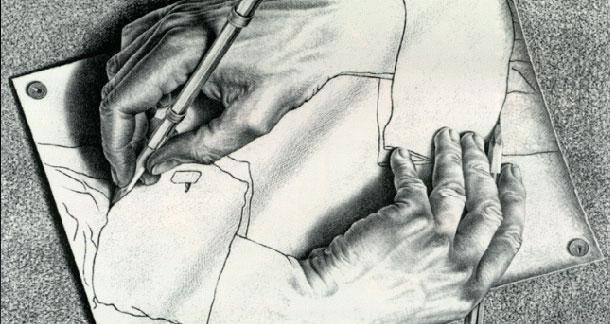Everybody has a distinct writing style.
A writing style isn’t defined by your content. Rather, it is primarily defined by how you treat content. You might use long, compound sentences, or you might use very few dependent clauses. You may pile on adjectives and use metaphors, or you might just stick to a simple noun + adjective + verb combo. Perhaps you prefer to use a broad vocabulary and a thick thesaurus, or you might just stick to basic words.
It doesn’t matter what your style is, as long as you commit to it.
Hemingway’s style was sparse. Mark Twain also employed a succinct approach. On the other end of the spectrum, people like J. R. R. Tolkien and Charles Dickens highlighted their verbosity. All four authors are legendary, and all four completely different.
But one thing that all of these writers have in common, in fact, the one thing that every writer has in common, regardless of style, is that they use “crutch” words. What separates a mediocre writer from a great one, however, is that great writers learn what their crutch words are, and remove them during editing.
Crutch words and phrases are words you automatically use in your writing over and over again. They are comfortable. They are obvious. But they’re NOT a good thing. Even if you have a sparse style, that’s no excuse to stick to your comfort zone.
But why are crutch words a bad thing? Well, if you use the same adjective over and over, or the same few verbs, your writing loses its excitement, and you can bore your reader.
Repeated crutch words, contrary to popular belief, are NOT part of an author’s style. This is because they’re communicating content, rather than a structure. It’s possible to use different words, or create a different way of describing something and still maintain the same style.
Beta readers are often able to point some of your biggest crutch words out, but we think it’s also a good idea to look at some hard numbers to see what kind of words and phrases you’re using too often.
There are several online generators that, after you copy and paste a section of text onto the page, will analyze your work for repeated words and will help you figure out what your style is.
Here are our favorite tools:
We love WordCounter because it gives you information on formatting mechanics. Paste in a scene and it will tell you how many paragraphs you have, how many sentences, and how long your average sentences are. If you’re struggling with maintaining a consistent tone in your writing, comparing these things might help tell you how to fix it. After all, structure is a big part of style.
One thing you need to keep in mind with this tool is that it only gives you the top ten words used. Although you can have the counter remove common words like “it,” “and,” and “they,” using the tool for repeat words will only really be valuable with short scenes or chapters, and not an entire book.
WriteWords has two features we are really excited about: a word frequency counter that gives you data on every word in your text, and a phrase counter.
The word counter is wonderful because it is so comprehensive, and thus can be used for an entire book. However, it doesn’t have a feature that excludes common words, so you’ll have to sort through them.
What makes WriteWords so great, though, is its phrase counter. Select how many words you’d like your searched phrase to be (from 2 to 6 words) and you’ll be surprised how often you combine the same words.
Even though these tools are excellent, they are automated, so they can never replace real human feedback from rounds of betas and editors. While you don’t want to rely on these exclusively to discover what your crutches are, they are an excellent way to begin to analyze your writing and to assess your style objectively while still keeping your readers interested.
Writers: what’s your style like, and what tools do you use to make sure it stays consistent?


I’ve tried a few online checkers and they were no help. Thank you for bringing a spotlight on the ones which could help.
Glad we could help Travis! Good luck.
Hi – thanks so much for this. I’m aware of some words I have a tendency to over-use and so far I’ve used the “find” function in Word, to pick out repetitions and replace some of them. I like the sound of that WriteWords tool – might give that a try.
Awareness is always a good thing. Using “find” in Word is a terrific tip. Let us know what you think about WriteWords. Thanks for the comment Susan.
Another great post. I never even heard the term “writing style.” And never knew about “crutch words” either. So, I have a little more manuscript work ahead of me. Which just means my final product will be that much better in the end.
Thanks for this and other posts.
Do you have to become a member of the WriteWords site to use the analysis tool? I didn’t see it on the site and am wondering if it’s in a members-only section because they do offer a pay service.
Here is the Best Word Counter Tool that i found http://rapidwordcounter.com/